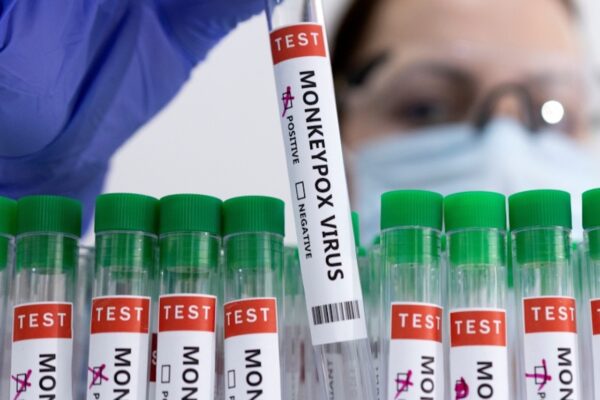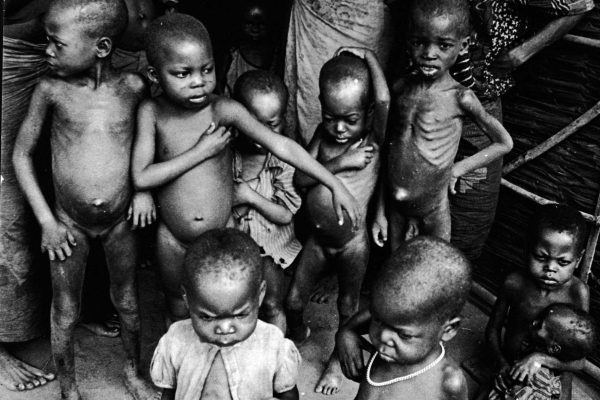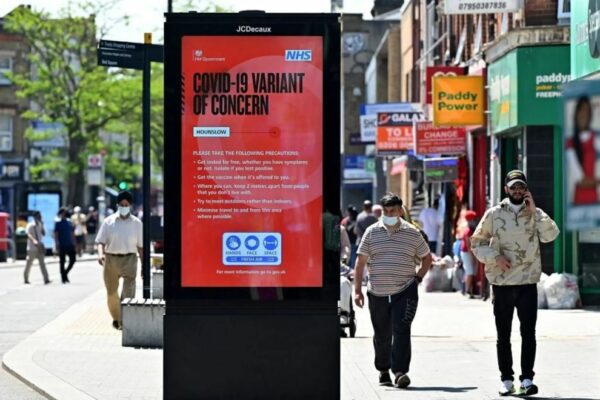WHO Declares Africa Free from Wild Polio After Decades of Struggle
The World Health Organization (WHO) has recently declared Africa free from wild polio. The Africa Regional Certification Commission, a self-governing body in authority for supervising the eradication of polio, has certified that all 47 countries in the WHO’s Africa Region have eliminated the virus after a long program of vaccination and inspection.
According to Pascal Mkanda, coordinator of the polio-eradication program at the WHO Regional Office for Africa in Brazzaville, Republic of Congo, this certification is a historic achievement.
This is a momentous milestone for #Africa. Now future generations of African children can live free of wild #polio!#poliofree #africakicksoutwildpolio #RC70AFRO https://t.co/zJ3GyJnHkA pic.twitter.com/e547eh8Vw9
— Dr Matshidiso Moeti (@MoetiTshidi) August 25, 2020
The 54-nation African continent where the disease was endemic, is now polio-free. A disease that as recently as the late 1980s was widespread in 125 countries, claiming 350,000 children each year, has now been run to ground in just two countries, Pakistan and Afghanistan, where there have been a collective 102 cases so far in 2020.
When a region doesn’t detect polio cases in any of its countries for three years, only then it is certified as free of wild polio. Reportedly, Africa’s last case of wild polio was recorded four years ago in northeast Nigeria. The disease has no cure, which causes irreversible paralysis and can be fatal if breathing muscles are affected, though the vaccination can protect people for life.
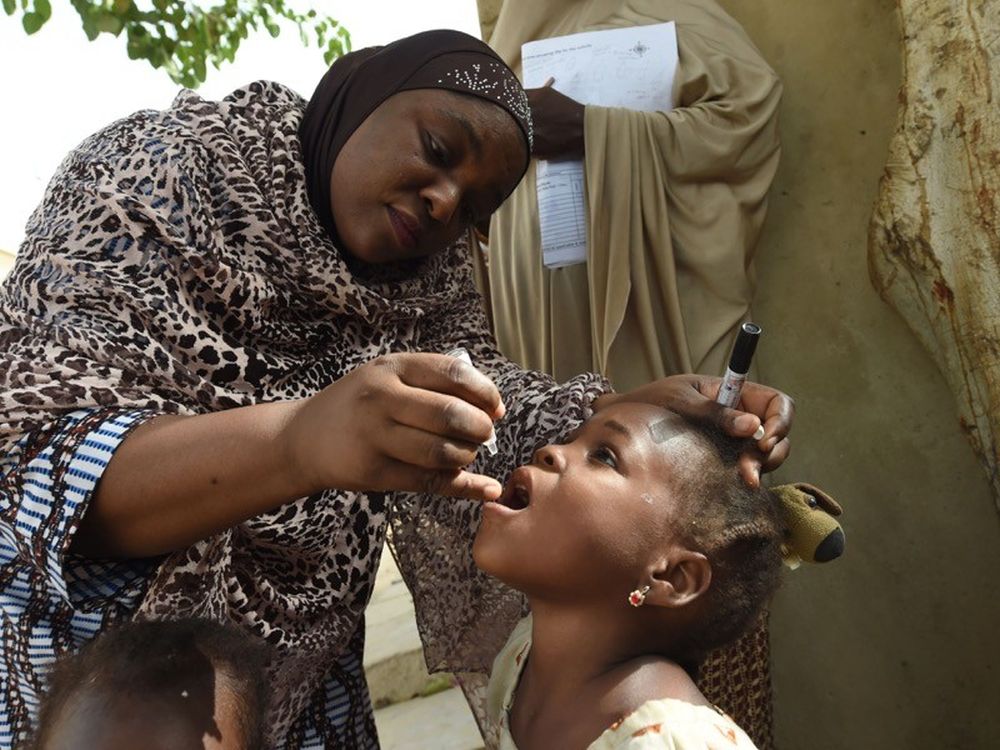
WHO has declared Africa free from wild polio | Image: Pius Utomi Ekpei/AFP
In 2012, the country was accounted for more than half of all polio cases across the world. The challenges faced by those working to free Nigeria from wild polio involved extensive misinformation about the vaccine, struggle and the difficulty of tracing nomadic populations that endangered spreading the disease during their migrations.
Chima Ohuanunwo, an epidemiologist at Morehouse School of Medicine in Atlanta, Georgia, coordinated a project to support polio eradication in Nigeria. Ohuanunwo says that engaging with traditional and religious leaders was important in the effort to encourage parents to vaccinate their children.
Long Battle Against Polio
Although wild poliovirus has been eradicated, Africa still has a battle against polio. In many countries, vaccination is done with oral drops containing a weakened form of the poliovirus, which occasionally mutates into a strain that can spread in under-immunized communities and cause paralysis.
Since August 2019, more than 20 countries across the world have reported cases of vaccine-deprived polio. As these outbreaks can usually be brought under control with further immunization, countries need to continue to vaccinate as many people as possible. Wild polio cases have decreased worldwide by more than 99 percent since 1988, but the virus is still widespread in Afghanistan and Pakistan, which still report many cases every year.
According to John Hewko, general secretary and CEO of Rotary International,
Today’s victory over the wild poliovirus in the African region is a testament to what can happen when partners from a variety of sectors join forces to accomplish a major global health goal. It is something the world can and should aspire to during these turbulent times.
Rotary, an international nonprofit service organization, kicked off the polio endgame in 1988 with the launch of the Global Polio Eradication Initiative (GPEI). The program intended to influence the power of Rotary’s 35,000 clubs and 1.22 million members in 200 countries and territories globally to make polio only the second human disease – after smallpox – to be eliminated.
The 32-year initiative has depended on volunteer workers and charitable donations, which collectively have generated an army of 20 million field workers administering vaccines to over 2.5 billion children at a cost of $17 billion.
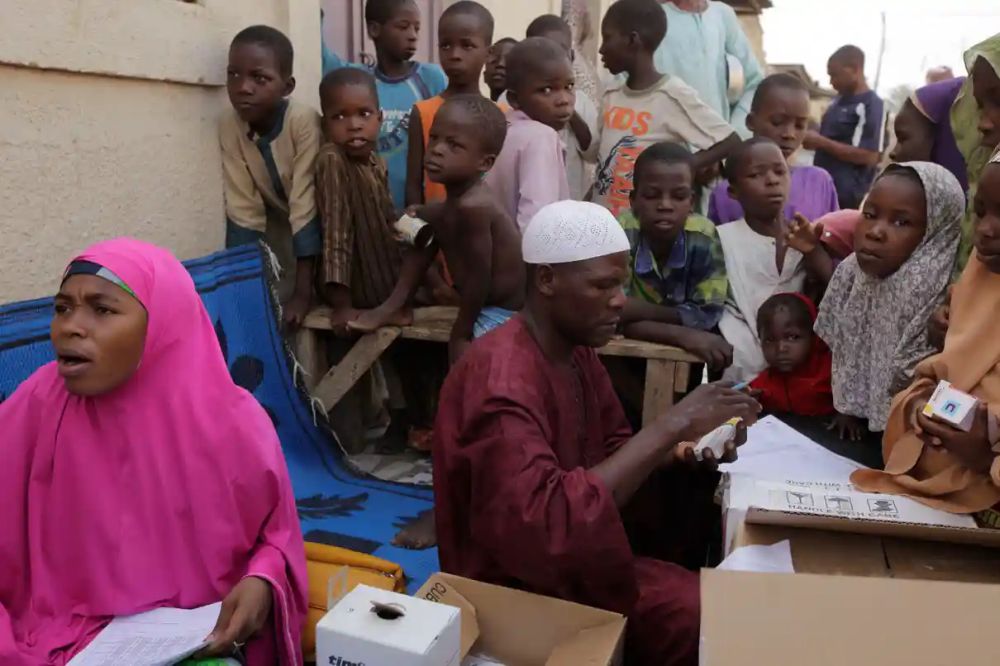
Children wait to receive polio vaccine in Kawo Kano, Nigeria, 2014 | Image: Sunday Alamba/AP
In the US, the disease was eradicated in 1979, well before the GPEI even began its work and in 1994 the Americas were declared polio-free. Europe as a whole got rid of polio in 2002 when all 53 countries in the WHO’s designated European region were declared free of the virus. Massive vaccination efforts that began in India in 1997 freed the country of polio in 2014.
Journey to Polio Free Africa
With its vast sprawl of village populations, long distances to urban hospitals, spotty infrastructure like adequate roads and reliable refrigerated transport networks to keep vaccines feasible, Africa had many challenges when it came to eradicating polio.
In 1996, when the case count on the continent frequently reached 75,000 victims every year, South African President Nelson Mandela collaborated with Rotary to launch the “Kick Polio Out of Africa” Campaign, and the group worked hard and constantly with so many children to vaccinate on the extensive land.
Big day for my African brothers & sisters – our continent will be declared #polio-free. This is one of the greatest public health achievements, demonstrating that with science & solidarity we can beat viruses & save lives. https://t.co/JhijcErtwM
— Tedros Adhanom Ghebreyesus (@DrTedros) August 25, 2020
In 2000, the first coordinated campaigns started in 17 countries, with 76 million children being vaccinated by tens of thousands of volunteers. The work escalated across the continent including an especially from 2008 to 2010 when an outbreak in 24 countries in western and central Africa was met by a large-scale, multi-national vaccination of 85 million children.
After years of hard work, only Nigeria was the only African country that was polio-affected, in part because of resistance by religious leaders in the northern part of the country who protested western intrusion in local affairs and claimed that the vaccine was unsafe. However, all hurdles were overcome in 2016, when the country recorded its last case of polio.
The long battle against the disease came to fruition in 2020 when Africa has finally become free from wild polio. This success against wild polio has shown the world that progress against some of the biggest global health challenges is certainly possible. Although the continent has gotten rid of polio, there is still a long road of efforts ahead to remain polio-free.
